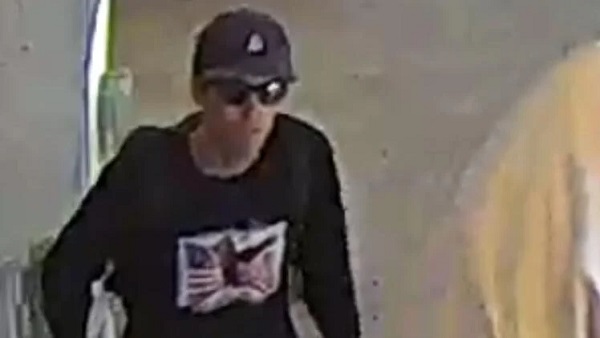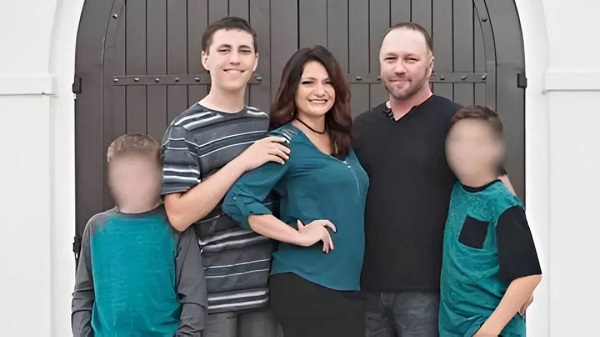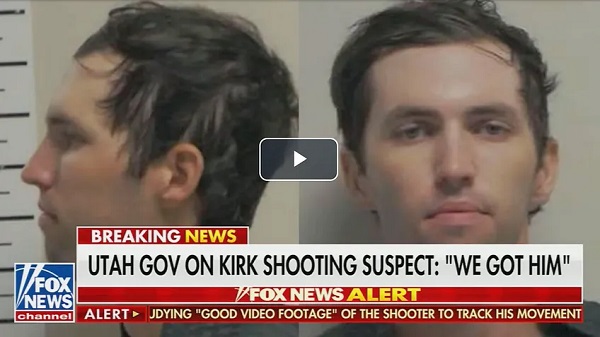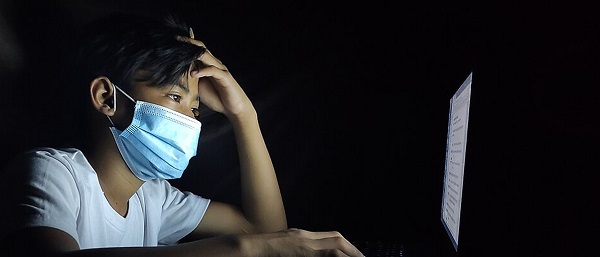International
Russiagate was a lie—and the media helped sell it

Quick Hit:
Newly declassified documents reveal that the Trump-Russia collusion narrative—widely circulated by Democrats and major media outlets—was not the result of intelligence failures or speculation, but a calculated and deliberate hoax orchestrated by the Hillary Clinton campaign. As David Marcus writes in a blistering op-ed for Fox News, “Democrats lied, and half the country believed them.” The files include explosive emails between Clinton advisers and operatives tied to George Soros’ Open Society Foundation, detailing how the campaign seeded the collusion lie to damage then-candidate Donald Trump. The evidence is damning, and it confirms that the conspiracy went far beyond opposition research—it involved coordinated misinformation spread through federal intelligence channels and complicit media outlets.
Key Details:
- Emails show Clinton adviser Julianne Smith pushed a long-term plan to “demonize Putin and Trump” with fabricated claims.
- Documents tie the Open Society Foundation to strategy discussions about using the media and FBI to sustain the hoax.
- Former Trump adviser Michael Caputo calls for accountability, stating the damage done to innocent Americans cannot be undone.
Diving Deeper:
In a searing exposé titled “The Russia hoax is simple. Democrats lied and half the country believed them,” Fox News columnist David Marcus lays bare the extent to which the Clinton campaign deceived the American public. The newly declassified files—released Thursday—confirm what many conservatives have long suspected: the Trump-Russia collusion story was a fraud, built on calculated misinformation, not credible intelligence.
“At the heart of this deception,” Marcus writes, “was the cold, calculated black-and-white evidence of how the Clinton campaign crafted the lie.” One of the most telling revelations includes a July 2016 email from Leonard Benardo, vice president of the Soros-funded Open Society Foundation. He wrote, “Julie [sic] says it will be a long-term affair to demonize Putin and Trump,” and chillingly added, “Later the FBI will put more oil into the fire.” Julie, in this case, is Julianne Smith, a top foreign policy adviser to Hillary Clinton.
Just days later, Benardo allegedly followed up with another email confirming, “HRC approved Julia’s idea about Trump and Russian hackers hampering U.S. elections,” noting it would serve as a distraction from Clinton’s own missing emails. Most damning of all, Marcus highlights a line from the email: “The point is making the Russian play a U.S. domestic issue… In absence of direct evidence, Crowdstrike and ThreatConnect will supply the media.”
These revelations point directly to a larger plan—one that ultimately relied on compliant media outlets and partisan actors inside federal intelligence agencies. As Marcus writes, “The Clinton campaign knew all too well that their lackeys in the media would eat up this half-baked nonsense with a spoon, and probably win awards for it—which is exactly what happened.”
The files even cite John Durham’s annex to the Russia hoax probe, which concluded that the Clinton team used “FBI-affiliated ‘attic-based’ technical structures” to feed false information to media giants under the guise of cybersecurity intelligence.
Former CIA Director John Brennan and former FBI Director James Comey stand at the center of this firestorm. According to Marcus, “field officers in the CIA objected to the lies and were run over because, according to their then-Director John Brennan, ‘it rings true.’” This vague standard was enough to get FISA warrants to spy on Trump’s associates renewed, creating the illusion of guilt and fueling years of baseless investigations.
Even after Trump won, the Obama administration continued to massage intelligence reports in late 2016 to sustain the lie. These manipulations led directly to Robert Mueller’s investigation, which cost taxpayers over $30 million and ultimately exonerated Trump.
But the cost was far greater than dollars. As Marcus noted, innocent lives were shattered. One such victim, Michael Caputo, told Marcus, “It is precious little comfort knowing we were right, we need accountability, but even accountability doesn’t feed the bulldog.” Caputo’s message was clear: lives were ruined, reputations crushed, and justice has yet to be served.
In 2018, a Suffolk poll showed the extent of the deception’s success: “Forty-six percent are convinced that there was collusion between the Trump campaign and the Russians.” Despite no evidence and a final report clearing Trump, nearly half the country had bought into the narrative—hook, line, and sinker.
Marcus ends with a searing moral indictment: “To everyone involved in this hoax, the message must be clear: This is your legacy, your attempt to deceive the American people and destroy the man they elected to lead them. That is who you are.”
With the truth finally exposed, the legacy of the Russia collusion hoax becomes one of deception, manipulation, and the ruthless pursuit of power at the expense of the American public.
International
Trump sues New York Times for $15 billion over ‘malicious, defamatory’ election coverage

From LifeSiteNews
Trump slammed the New York Times’ negative, election-year coverage of his family’s business as the ‘single largest illegal Campaign contribution, EVER.’
President Donald Trump announced on Monday he has filed a $15 billion libel suit against the New York Times for its critical coverage of his family’s business ventures, calling it the “single largest illegal Campaign contribution, EVER.”
“Today, I have the Great Honor of bringing a $15 Billion Dollar Defamation and Libel Lawsuit against The New York Times, one of the worst and most degenerate newspapers in the History of our Country, becoming a virtual ‘mouthpiece’ for the Radical Left Democrat Party,” Trump wrote on Truth Social.
“I view it as the single largest illegal Campaign contribution, EVER. Their Endorsement of Kamala Harris was actually put dead center on the front page of The New York Times, something heretofore UNHEARD OF! The ‘Times’ has engaged in a decades long method of lying about your Favorite President (ME!), my family, business, the America First Movement, MAGA, and our Nation as a whole,” he continued.
The suit names the Times, Penguin Random House, and NYT reporters Peter Baker, Russ Buettner, Susanne Craig, and Michael Schmidt, regarding Buettner and Craig’s 2024 book Lucky Loser: How Donald Trump Squandered His Father’s Fortune and Created the Illusion of Success (published by Penguin) and a trio of critical articles the paper published about Trump prior to the election.
These works, the suit maintains, were “a malicious, defamatory, and disparaging book written by two of its reporters and three false, malicious, defamatory, and disparaging articles, all carefully crafted by Defendants, with actual malice, calculated to inflict maximum damage upon President Trump, and all published during the height of a Presidential Election that became the most consequential in American history”; in order to “(a) damage President Trump’s hard-earned and world-renowned reputation for business success, (b) in the process, sabotage his 2024 candidacy for President of the United States, and (c) prejudice judges and juries in the unlawful cases brought against President Trump, his family, and his businesses by his political opponents for purposes of election interference.”
The president seeks $15 billion in “compensatory damages,” plus punitive damages and legal costs.
“This lawsuit has no merit. It lacks any legitimate legal claims and instead is an attempt to stifle and discourage independent reporting,” the Times responded. “The New York Times will not be deterred by intimidation tactics. We will continue to pursue the facts without fear or favor and stand up for journalists’ First Amendment right to ask questions on behalf of the American people.”
“Penguin Random House stands by the book and its authors and will continue to uphold the values of the First Amendment that are fundamental to our role as a book publisher,” added a Penguin spokesperson, who also called the suit “meritless.”
Trump has sued numerous media outlets on defamation grounds, with some success. He secured a $16 million settlement with CBS parent company Paramount in July and a $15 million settlement from ABC News in December 2024. He is also suing the Wall Street Journal and the Des Moines Register (plus the latter’s parent company Gannett), in fights that have yet to be resolved.
Crime
U.S. Lawmakers Confront Chinese Government Conspiracy Behind Marijuana Boom

Officials testified that Chinese state-backed grow networks have created a $153 billion black market in Oklahoma alone, with suspicious activity reported near the nation’s largest munitions plant.
In chilling testimony to Congress, law enforcement officials warned that Chinese organized crime groups, operating with Beijing’s support, have transformed America’s marijuana boom into a $153 billion black-market industry in Oklahoma alone — an enterprise marked by execution-style killings and grow sites planted near sensitive U.S. military infrastructure.
Suggesting that this Chinese crime wave — largely unrecognized by the American public — is part of a trillion-dollar enterprise embedded in multiple states, legislators heard that the epicenters include Oklahoma, Maine, California, and Michigan. Thousands of Chinese-run farms have proliferated under lax state laws, with workers smuggled across the Mexican border and forced into slave-like conditions. Properties are acquired through real estate and legal fraud, while the operations feed a nationwide criminal network tied to the Chinese Communist Party, fentanyl trafficking, weapons smuggling, prostitution, and global money laundering.
The Subcommittee on Oversight, Investigations, and Accountability hearing — entitled “Invasion of the Homeland: How China is Using Illegal Marijuana to Build a Criminal Network Across America” — heard first from Donnie Anderson, Director of the Oklahoma Bureau of Narcotics and Dangerous Drugs Control.
Anderson testified that Oklahoma’s loose medical marijuana framework inadvertently opened the door to transnational syndicates, fueling what he described as a $153 billion black-market industry. After more than three decades in public safety, he said, “the impact of black-market marijuana in Oklahoma is unlike anything I have encountered in my career. What is even more alarming is the growing influence and involvement of the Chinese Communist Party in this illicit industry.”
Anderson explained that Chinese nationals dominate the operations, concealing control through straw buyers, fraudulent licenses, and shell companies, often backed by attorneys, real estate agents, and consultants. He warned that the CCP also maintains control by leveraging encrypted apps. “Because WeChat is based in mainland China and encrypted, U.S. law enforcement cannot serve legal process or conduct electronic surveillance as we would with domestic platforms,” he said, “making them a major obstacle in our investigations.”
—
The human toll has been severe. In 2022, four Chinese nationals were executed and a fifth critically wounded at an illegal grow near Hennessey, Oklahoma. In July 2025, a Canadian national was murdered execution-style at a grow near Lake Thunderbird, in what investigators believe was a targeted robbery.
—
Anderson testified there is “no doubt” the Chinese government has shown interest in Oklahoma’s marijuana industry, citing documented financial transfers to the Bank of China and connections to Chinese state-owned businesses. He further warned that the CCP is leveraging its global influence apparatus to maintain control of these sites. “It is my belief that the CCP maintains access to the criminal marijuana site operations, particularly through its known practice of controlling expatriates via so-called ‘police stations,’” he told lawmakers.
He also highlighted national security risks from the physical location of these grows. In one ongoing investigation, the Department of Defense flagged suspicious activity at a marijuana grow run by an ethnic Chinese group next to the McAlester ammunition plant — the nation’s largest munitions facility, home to nearly one-third of the Pentagon’s stockpile and responsible for producing the MOAB bomb.
“Alarmingly, many of these grows are located near critical infrastructure, including military bases and pipelines,” Anderson added, warning that the proximity of foreign-run criminal operations to sensitive U.S. defense assets raised extraordinary risks.
Pressed by a Georgia legislator on why Americans remain unaware of this foreign crime wave, Anderson stressed the scale and sophistication of the operations. “When I say sophisticated, I mean at a level that law enforcement across the nation has never seen before — that complex, that layered. They hide themselves under many layers of LLCs and ownership structures,” he said.
As an example, Anderson described how Oklahoma registries might show a “John Smith” listed as the 75 percent owner of a marijuana business. “But when you dig in, you find John has never put up the $3,500 required to put his name on that license. The money comes from elsewhere, because Chinese nationals cannot directly do that in the state of Oklahoma. Meanwhile, the real organizers are often people in places like Flushing, New York, or California. They control operations across the United States but may never step foot in Oklahoma, except to occasionally visit.”
He added: “And this isn’t just an Oklahoma problem — it’s global. Chinese nationals are doing similar things in Latin America and the Caribbean, where they are building infrastructure, even roads, as part of larger investments. There’s always a reason behind it, and it connects back here to the United States. At its core, this is about national security, not just Oklahoma. And you’re right — most Americans have no idea this is happening.”
The panel’s second witness, legal scholar Paul Larkin, argued that Chinese organized crime groups cannot be separated from the state whose nationals dominate them. “The Chinese organized crime elements are working with the tacit agreement of the PRC and CCP,” he testified, stressing that U.S. conspiracy law provides the tools to prosecute these networks as such. He pointed to the long-established legal principle of willful blindness: juries are entitled to infer intent from patterns of conduct, even without express agreements.
One legislator asked: “Earlier this week, we discussed how foreign adversaries see U.S. agriculture not only as an economic target but also as a homeland security vulnerability. Mr. Larkin, how significant is land acquisition to the broader strategy of Chinese criminal groups operating in America?”
“First, it gives them property to grow and process illicit drugs, which can then serve as distribution hubs,” Larkin said. “But beyond that, certain sites — especially indoor grows — could also be leveraged for espionage. They could be positioned to monitor nearby American communities, military bases, or other sensitive facilities. That makes land acquisition not just a criminal concern, but a serious national security threat.”
If Larkin pressed the legal case for direct CCP accountability, the next witness, retired DEA executive Chris Urben, supplied the operational picture. He stressed that federal task forces must deploy the RICO Act — once used against the Italian mafia — to give under-resourced state agencies the support to combat what he called the new dominant crime element from China.
Drawing on his 24-year career, Urben testified that Chinese money laundering networks have quietly transformed the economics of the global drug trade, emerging around 2016 as the predominant launderers for criminal groups worldwide. China’s value to the Mexican cartels, he explained, goes beyond supplying synthetic opioid precursors; its laundering services have supercharged cartel profits, boosting proceeds by as much as five percent.
Asked by a legislator how China had seized global dominance in money laundering, Urben was blunt: the advantage is WeChat. Controlled by the Chinese Communist Party, the encrypted platform cannot be tapped by U.S. law enforcement.
“No other global crime network has a state-protected, trusted communications system like that,” Urben said. “WeChat needs to be disrupted. It cannot continue to function as a secure platform for criminal money laundering. There must be a state-level, legislated solution with the Chinese government — one that ends WeChat’s role in these networks.”
He warned that dismissing marijuana grows as “just weed cases” is a dangerous mistake. “They are harmful in and of themselves, and they also help fuel Chinese money laundering networks and other Chinese transnational crime-linked activity such as human trafficking, fentanyl distribution, and other dangerous and harmful activities.” Such cases, he urged, must be treated as RICO-prosecutable money-laundering conspiracies tied directly into the global fentanyl and trafficking economy.
At the outset of the hearing, Chairman Josh Brecheen of Oklahoma framed the issue in broader terms. “We are here today to talk about an important issue, significant national security implications,” he said, making clear that the problem was not confined to his home state but stretched “to Maine, California, and all across our homeland.”
Brecheen laid out the scale of what lawmakers were confronting: thousands of Chinese-run marijuana grow operations, not isolated in backwoods counties but dispersed nationwide — embedded in tribal lands, national parks, and suburban communities. He stressed that these are not simple drug cases. “Many Chinese illegal operations serve as fronts for a wider criminal enterprise, including human and drug trafficking, prostitution, weapons smuggling, and money laundering,” he said. These networks, often with direct or indirect ties to the CCP, have built a sophisticated underground criminal infrastructure in the United States.
The national security implications, he warned, were profound. “We’ve enabled these foreign organizations with potential links to the CCP to build up a sophisticated network throughout the United States, which facilitates a wide range of other criminal activity and presents a national security threat.”
Some of the foreign nationals running these sites, Brecheen added, are more heavily armed than the sheriffs and deputies who might stumble onto them.
After sketching the scope of the threat, Brecheen turned to “paint the picture” of how the operations unfold on the ground. He described how groups of Chinese nationals, affiliated with transnational criminal organizations, cross the southern border and fan into rural states like Oklahoma. With them are vulnerable workers, lured under the false promise of legal employment. Once in place, the crime groups recruit a local resident, offering several hundred thousand dollars to use their name and identity to purchase farmland. It is a proposition the resident “cannot refuse.”
The arrangement moves quickly. Within days, a seemingly ordinary property is converted into a sprawling grow site. Workers are forced into 14-hour shifts, confined to cramped quarters with little water or ventilation. Toxic pesticides — banned in the United States — are burned on-site, creating fumes that poison both the laborers and the surrounding environment. Armed guards oversee the operation, ensuring obedience. The marijuana produced is high-potency and contaminated, yet within weeks it is trafficked across the country, from Oklahoma to New York, feeding an illicit market worth many billions.
The Bureau is a reader-supported publication.
To receive new posts and support my work, consider becoming a free or paid subscriber.
-

 Alberta2 days ago
Alberta2 days agoParents group blasts Alberta government for weakening sexually explicit school book ban
-

 Frontier Centre for Public Policy2 days ago
Frontier Centre for Public Policy2 days agoBloodvein Blockade Puts Public Land Rights At Risk
-

 International2 days ago
International2 days agoFrance records more deaths than births for the first time in 80 years
-

 Business2 days ago
Business2 days agoThe Truth Is Buried Under Sechelt’s Unproven Graves
-

 COVID-191 day ago
COVID-191 day agoFreedom Convoy leader slams Canadian gov’t agency for praising its treatment of protesters
-

 National2 days ago
National2 days agoChrystia Freeland resigns from Mark Carney’s cabinet, asked to become Ukraine envoy
-

 Energy1 day ago
Energy1 day agoA Breathtaking About-Face From The IEA On Oil Investments
-

 COVID-1917 hours ago
COVID-1917 hours agoCanadian gov’t to take control of vaccine injury program after reports of serious mismanagement








